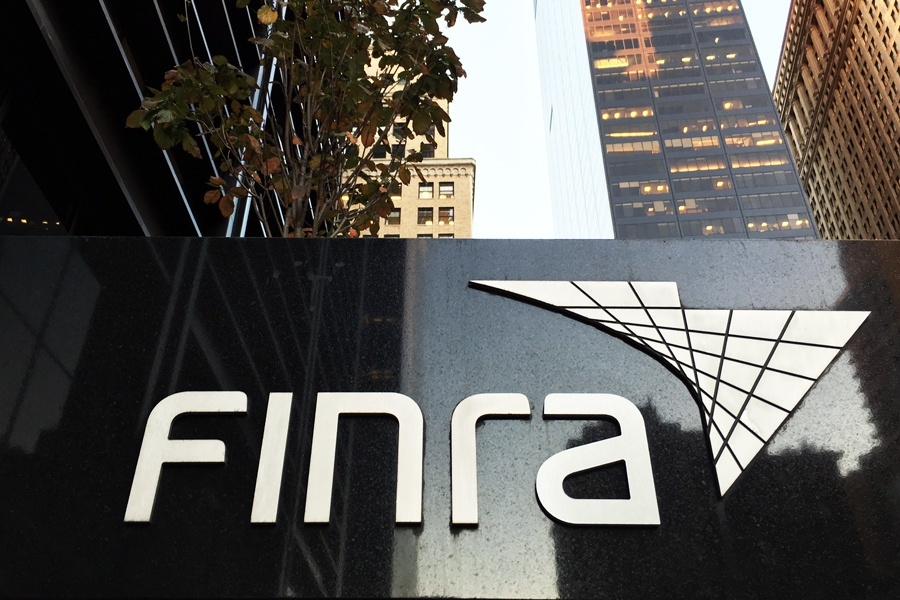

Fast-growing technology platforms that specialize in whiz-bang online trading at times fall short of securities industry rules. The most notable recent example was Robinhood, the mobile brokerage app and brokerage that agreed in 2021 to pay a total of $70 million in fines and restitution to settle claims it harmed customers as a result of false or misleading information, system outages and approval of trade options that were not appropriate.
The Financial Industry Regulatory Authority Inc. settled that matter with Robinhood. On Tuesday, Finra reached settlements totaling $2.6 million in fines and restitution with four mobile apps and online broker-dealers for falling short in compliance with rules related to securities lending programs, as well as rules regarding communications and advertising.
The four firms were M1 Finance, Open to the Public Investing Inc., SoFi Securities and SogoTrade Inc.
Securities lending is the common and lucrative practice in which a clearing firm borrows a customer’s fully paid or excess margin securities and lends them to a third party in exchange for a daily borrowing fee.
Such shortcomings in compliance at broker-dealers can happen when firms grow too quickly, said Sandy Ressler, managing director of Essential Edge Compliance Outsourcing Services.
"The problem is, these firms had securities lending programs, and none of the money went to the customers," Ressler said. "That's an internal audit or financial control type problem. The firms are retaining capital that doesn’t belong to them.
"These are securities that are wholly owned by the client, and the broker-dealer is not paying the customers any of the revenue," he added. "Who were the accountants? Lending securities can be lucrative. It's significant source of revenue for the firm, and they have to split that with the client."
According to Finra, when a customer chooses to enroll in a fully paid lending program, the clearing firm determines which securities to borrow, when and on what terms. The daily borrowing fee that the clearing firm collects is generally shared among the clearing firm, the introducing broker-dealer, and the customer who owns the borrowed security.
The four broker-dealers that Finra sanctioned "failed to establish, maintain, and enforce a supervisory system, including written supervisory procedures, reasonably designed to supervise their fully paid securities lending offerings," according to Finra.
M1 Finance, Open to the Public Investing, SoFi Securities, and SogoTrade agreed to Finra's findings without admitting or denying the charges.
M1 Finance was fined $500,000 and agreed to pay $737,000 in in client restitution. The firm did not return a message Wednesday to comment.
Open to the Public Investing Inc. was fined $500,000 and will pay $28,000 in restitution. It did not respond to a request for comment.
SoFi Securities was fined $500,000 and will pay $298,000 of client restitution. It also did not respond to a request for comment.
SogoTrade Inc. was fined $100,000 and agreed to $105,000 in client restitution. The company was "glad to cooperate with Finra in its inquiry regarding the securities lending program and is pleased to have that matter resolved and behind it with the letter issued today," a company spokesperson wrote in an email. "SogoTrade has already enhanced its compliance with respect to this program."

A new proposal could end the ban on promoting client reviews in states like California and Connecticut, giving state-registered advisors a level playing field with their SEC-registered peers.

Morningstar research data show improved retirement trajectories for self-directors and allocators placed in managed accounts.

Some in the industry say that more UBS financial advisors this year will be heading for the exits.

The Wall Street giant has blasted data middlemen as digital freeloaders, but tech firms and consumer advocates are pushing back.

Research reveals a 4% year-on-year increase in expenses that one in five Americans, including one-quarter of Gen Xers, say they have not planned for.
Orion's Tom Wilson on delivering coordinated, high-touch service in a world where returns alone no longer set you apart.
Barely a decade old, registered index-linked annuities have quickly surged in popularity, thanks to their unique blend of protection and growth potential—an appealing option for investors looking to chart a steadier course through today's choppy market waters, says Myles Lambert, Brighthouse Financial.
